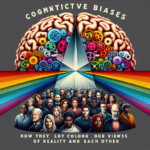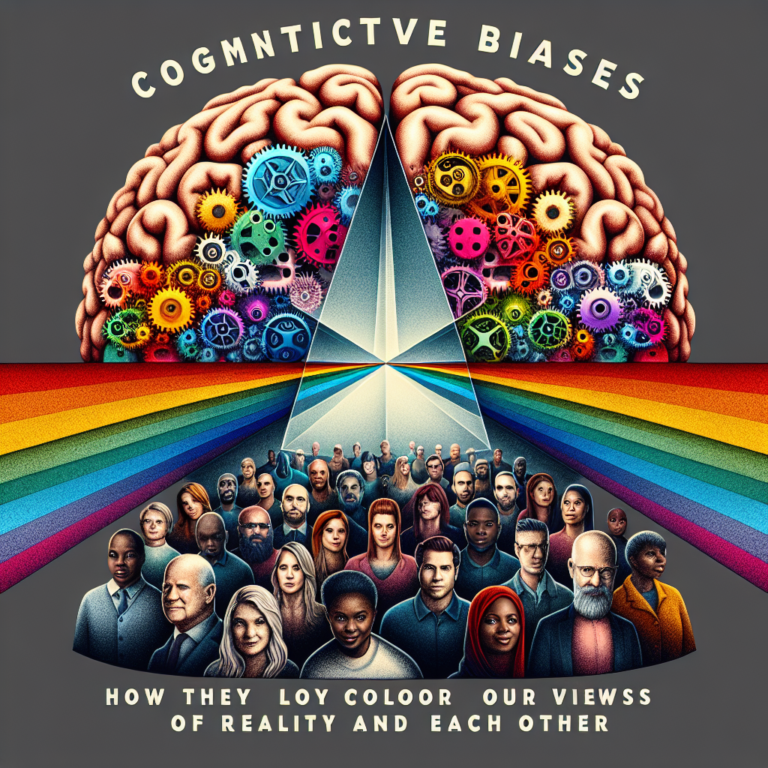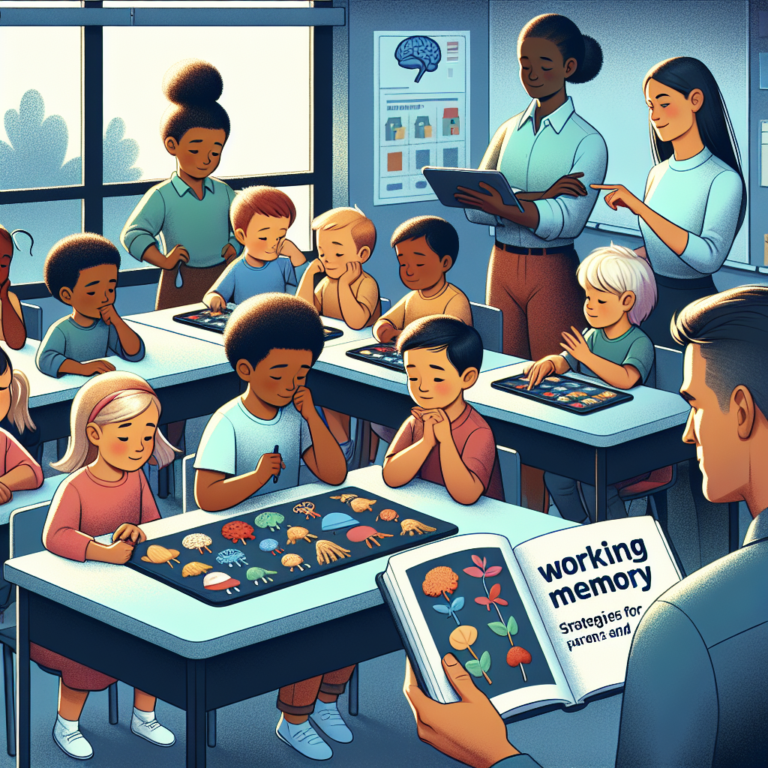
Introduction
Have you ever found yourself doubting your abilities only to experience failure as a result? Conversely, have you felt an unwavering confidence that led you to successful outcomes? This intricate relationship between our beliefs and our experiences is not just anecdotal but is deeply rooted in psychological principles known as self-fulfilling prophecies. In this article, we will explore "From Doubt to Destiny: The Impact of Self-Fulfilling Prophecies in Daily Life." Our aim is to not only understand this phenomenon but also to harness its power for positive outcomes.
Understanding Self-Fulfilling Prophecies
What Are Self-Fulfilling Prophecies?
A self-fulfilling prophecy occurs when a belief or expectation brings about its own fulfillment. For instance, if a student believes they will fail an exam, their anxiety may negatively affect their preparation and ultimately lead to poor performance. Essentially, our beliefs shape our behaviors, which in turn influence our outcomes.
The Psychological Background
The concept can be traced back to sociologist Robert K. Merton, who coined the term in 1948. Merton explained that these prophecies could be either negative or positive and are fueled by expectations from others as well as oneself. The cycle is often illustrated through the "Expectation-Action-Result" framework:
| Expectation | Action | Result |
|---|---|---|
| “I will fail” | Reduced effort | Failure |
| “I will succeed” | Increased effort | Success |
Understanding this framework is crucial to harnessing self-fulfilling prophecies positively in daily life, truly guiding us from doubt to destiny.
The Ripple Effect of Self-Fulfilling Prophecies
Personal Life: Case Study of Self-Confidence
Consider the case of Sarah, a talented musician who doubted her skills. Influenced by critical comments during her early learning years, Sarah began to believe she was not good enough. This doubt manifested in her quiet performances and lack of participation in music competitions, ultimately confirming her belief that she was not destined for success.
Analysis: This case illustrates that achieving personal goals often hinges on self-belief. When Sarah turned her doubts around and started participating, her confidence soared, leading her to win local competitions and pursue a professional music career.
Workplace Dynamics: The Manager’s Expectation
In a corporate setting, the impact of self-fulfilling prophecies can be profound. A manager who assumes certain employees are underperformers might set lower expectations for them. Consequently, these employees may feel unvalued and disengaged, validating the manager’s initial assumption.
Table: Employee Performance vs. Managerial Expectations
| Manager Expected Level | Employee Performance | Final Assessment |
|---|---|---|
| Low | Below expectations | Underperforming |
| High | Above expectations | High achiever |
Analysis: Urban studies show that managerial perception dramatically influences employee morale, performance, and ultimately, the company’s bottom line.
Transforming Doubts into Destinies
Reframing Negative Beliefs
Cognitive Behavioral Techniques: One useful method for shifting negative beliefs is cognitive restructuring, where individuals challenge and change unhelpful thought patterns.
- Visualization and Affirmations: Athletes and successful professionals often employ visualization techniques to imagine their success, effectively programming their minds for achievement.
Positive Feedback Loops
Once initial positive changes occur, they can create a ripple effect. The more you succeed, the more confident you become. The journey from doubt to destiny is often synergistic, with each success reinforcing your belief in your capabilities.
Community and Cultural Influence
The expectations of those around us—family, friends, and community—play a significant role in shaping our beliefs and actions. Social encouragement can bolster our self-efficacy, promoting a shift from doubt to a destiny filled with possibilities.
Resilience through Learning
Embracing failure as a learning opportunity can transform the narrative. Those who view setbacks as temporary and solvable often emerge stronger, thus altering the cycle of self-fulfillment.
Real-Life Implications of Self-Fulfilling Prophecies
Education: Case Study of Teacher Expectations
Research has shown that teachers’ expectations can dramatically influence student performance. In a famous study, Rosenthal and Jacobson found that when teachers believed that certain students were “intellectual bloomers,” those students showed significant gains in academic performance, despite being randomly selected.
Analysis: This highlights how teachers’ beliefs can shape students’ destinies, underscoring the importance of fostering a positive learning environment.
Healthcare: The Role of Patient Beliefs
Patients who believe in their healing often experience better health outcomes. Studies have demonstrated that the placebo effect is a compelling illustration of how belief influences physical reality.
Chart: Placebo Effect Outcomes
| Expectation (Belief) | Health Outcome |
|---|---|
| Positive | Improved Recovery |
| Negative | No Improvement |
Analysis: This evidence reinforces the idea that a patient’s mindset can lead from doubt in their condition to a stronger physical health destiny.
Overcoming Barriers to Positive Outcomes
The Importance of Awareness
The first step in changing self-fulfilling prophecies is awareness. Recognizing your doubts and understanding how they affect your actions is crucial in shifting from doubt to destiny.
Embracing Growth Mindset
Adopting a growth mindset—the belief that abilities can be developed through effort and learning—empowers individuals to break free from limiting beliefs.
Actionable Steps to Call to Action
- Set Realistic Goals: Establish achievable benchmarks that encourage confidence.
- Seek Constructive Feedback: Surround yourself with supportive individuals who uplift your belief system.
- Practice Self-Compassion: Encourage positive self-talk to combat negative beliefs.
Conclusion
The journey from doubt to destiny is a powerful narrative that we all have the ability to reshape. Recognizing the impact of self-fulfilling prophecies in daily life allows us to become more intentional about our beliefs. Changing our mindsets can lead not just to personal success but also to meaningful changes in our communities and workplaces.
It’s time to challenge the doubts that have held us back and embrace a future filled with potential. Your destiny awaits—it’s time to believe in it.
FAQs
1. What are self-fulfilling prophecies?
Self-fulfilling prophecies are beliefs that provoke behaviors that cause the belief to come true, either positively or negatively.
2. How can I reverse negative self-fulfilling prophecies?
You can reverse negative self-fulfilling prophecies by challenging unhelpful thoughts, practicing positive affirmations, and surrounding yourself with supportive influences.
3. Are self-fulfilling prophecies always negative?
No, self-fulfilling prophecies can be both positive and negative. Positive expectations can lead to successful outcomes.
4. Can self-fulfilling prophecies impact groups or teams?
Yes, the collective beliefs and expectations within a group can significantly affect overall performance and cohesion.
5. How significant is the role of community in shaping self-fulfilling prophecies?
The expectations and support from community members can greatly enhance individual self-efficacy and contribute to achieving goals.
Embrace your journey from doubt to destiny; every belief you hold can take you closer to your dreams.















